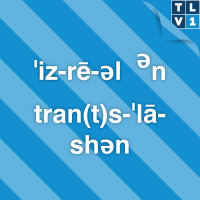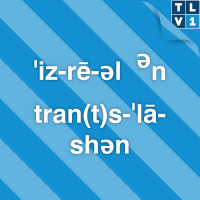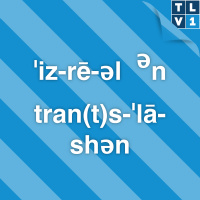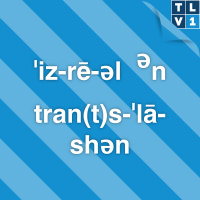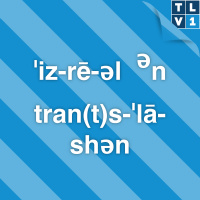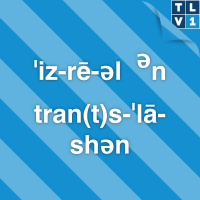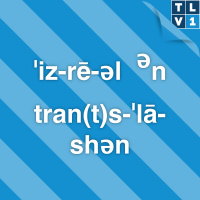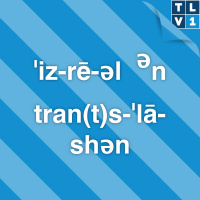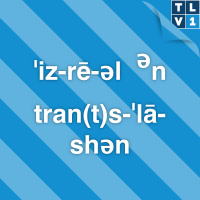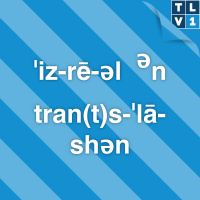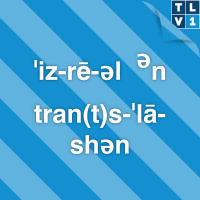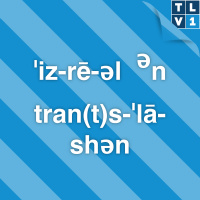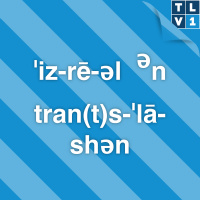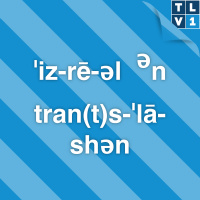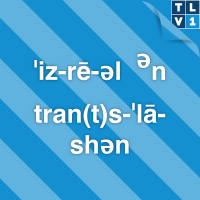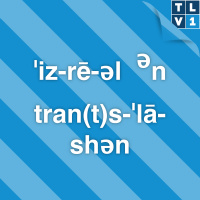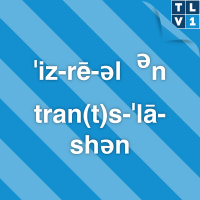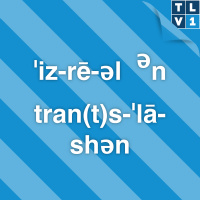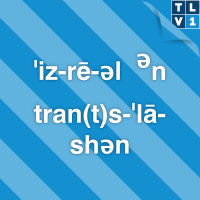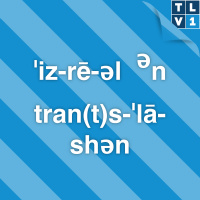Israel In Translation
- Author: Vários
- Narrator: Vários
- Publisher: Podcast
- Duration: 44:23:12
- More information
Informações:
Synopsis
Exploring Israeli literature in English translation. Host Marcela Sulak takes you through Israels literary countryside, cityscapes, and psychological terrain, and the lives of the people who create it.
Episodes
-
In Transit: Poems by Tuvia Ruebner
29/11/2017 Duration: 10minTuvia Ruebner is a poet who was born was born in multi-ethnic Bratislava, Slovakia in 1924 and received permission to enter British Mandate Palestine in 1941. To this day, he translates his work into German, and all of it has been published in Germany. In Hebrew, he is the author of fifteen volumes of poetry, two photograph albums, and a monograph on the poetry of his close friend, writer-scholar Lea Goldberg, as well as other literary criticism and translations. Text: Tuvia Ruebner, Late Beauty. Translated by Lisa Katz and Shahar Bram. Zephyr Press, 2017. Previous episode of "Israel in Translation" featuring poems by Tuvia Ruebner.
-
Immigration Anxiety: Tamar Merin's “What Are You Looking At?”
22/11/2017 Duration: 07minTamar Merin is a writer, critic, and literary scholar. In her story “What Are You Looking At?”, the prosaic act of a mother and son going for ice cream becomes an exploration of the anxiety of immigration, the shock of living in a new land. Text: “What are you Looking At?” by Tamar Merin. Translated by Ari Leiberman.
-
Between Legend and Reality: the Poems of Sharon Hass
15/11/2017 Duration: 06minSharon Hass's poems draw on mythical images and on philosophy, reflecting her academic background. Many of her pieces dance on the border between reality, legend and dream, while frequently alluding to figures known from ancient mythology and world literature. Music: Lonely Arcade Man – Diamond Estate The Video Within – Diamond Estate Text: Poems by Sharron Hass, translations by Amalia Ziv, Vivian Eden, Lisa Katz.
-
Next Door Neighbor: Eshkol Nevo’s "Three Floors Up"
08/11/2017 Duration: 09minSet in a Tel Aviv apartment building, Eshkol Nevo’s newest novel, Three Floors Up, examines a society in crisis, through the turmoils, secrets, unreliable confessions, and problematic decisions of the building’s residents. On the first floor, Arnon, a tormented retired officer who fought in the First Intifada, confesses to an army friend how his obsession with his daughter’s safety led him to lose control and put his marriage in peril. Above Arnon lives Hani, whose husband travels the world for work while she stays at home with their two children, increasingly isolated and unstable. On the top floor lives a former judge, Devora. Retired and eager to start a new life, she joins a social movement, tries to reconnect with her estranged son, and falls in love with a man who isn’t what he seems. Text: Three Floors Up. Sondra Silverston. Otherpress, Oct. 2017. Eshkol Nevo’s Homesick Episode
-
Translator Interview Series: Michael Kramer
01/11/2017 Duration: 22minIn April, we kicked off a series of conversations with translators of texts featured on this podcast. Today, host Marcella Sulak interviews Michael Kramer for the second installment. He teaches in the Shaindy Rudoff Graduate Program in Creative Writing at Bar-Ilan University. He has authored and edited numerous books and essays on Jewish and American literature and has also translated S. Y. Agnon’s “And The Crooked Shall Be Made Straight.” Previous episodes: Sitting with Strangeness: A Conversation with Adriana X. Jacobs on Translating theIsraeli-Vietnamese Poet Van Nguyen And the Crooked Shall be Made Straight
-
Outside Looking In: Ya’ara Shehori's "Aquarium"
18/10/2017 Duration: 05minPoet, writer, and editor Ya’ara Shehori was awarded the Fulbright International Writing Program and is, as we speak, participating in the International Writing Program (IWP) at the University of Iowa. This means that part of her latest novel, “Aquarium,” has been translated into English by Maayan Eitan. Interview with Ya’ara Shehori
-
New Beginnings: Poetry for the High Holidays
11/10/2017 Duration: 04minTomorrow is the last day of the 2017 high holiday season, which began with Rosh Hashanah and ends with sukkot and Simchat Torah. This year, host Marcela Sulak wraps up the holidays with a selection of poetry from various poets. Text: “On the Eve of the Holiday,” by Hava Pinhas-Cohen, translated by Sharon Hart-Green, in “Bridging the Divide.” Syracuse University Press, 2015. “The Illustrated Bible,” by Meir Wieseltier, translated by Shirley Kaufman with the author, in “The Flower of Anarchy: Selected Poems.” University of California Press, 2003. Music: Dunet by The Bridge Project
-
"Swede Dreams" are Made of This
04/10/2017 Duration: 05minThis past Shabbat was also Yom Kippur, which is the writer Etgar Keret’s favorite holiday. This week, host Marcela Sulak reads his piece, “Swede Dreams,” originally published in The Tablet, and which you can find in his memoir, “The Seven Good Years,” translated by Sondra Sondra Silverston. It is about Keret’s 2009 visit to Sweden, just before Yom Kippur. Here is an excerpt: The Swedes listened and were fascinated. The thought of a day on which no motorized vehicles drive through the cities, people walk around without their wallets and all the stores are closed, a day on which there are no TV broadcasts or even updates on websites–all sounded to them like an innovative Naomi Klein concept and not like an ancient Jewish holiday. Text: Etgar Keret, “Swede Dreams,” in “The Seven Good Years: A Memoir.” Translated by Sondra Silverston, Miriam Shlesinger, Jessica Cohen, and Anthony Berris. New York: Riverhead Books, 2015.
-
Special: Children's Book Recommendations
27/09/2017 Duration: 02minHost Marcela Sulak's daughter, Amalia, gives her top three children's book recommendations for the holidays.
-
Fear and Glory: Rosh Hashanah's "Unetanneh Tokef"
20/09/2017 Duration: 05minToday’s episode is about the story behind the prayer we most usually associate with Rosh Hashanah, “Unetanneh Tokef.” We don’t know who wrote the poem, although it’s attributed to an 11th century sage who lived in Germany. Modern scholars say the prayer is much older than originally believed, perhaps as early as the 8th century. Host Marcela Sulak explains the legend behind this piece of liturgy from the high holiday services and reads the prayer for the new year. Music: “ונתנה תוקף” by סא”ל שי אברמסון & המקהלה והתזמורת הפילהרמונית אס.אף.ווי Text: Unetanneh Tokef (Wikipedia)
-
Symbol and Struggle: Poetry from Eli Eliahu
13/09/2017 Duration: 07minEli Eliahu is a poet who lives in Ramat-Gan. Recently, his work has begun to be translated and published into English. Eliahu’s work can be playful and fanciful, but it is also socially engaged. He has described his poetry as “a documentation of the struggle of the individual against [the] background” of “a very stressed, crowded, violent and noisy country.” Eliahu has published two highly praised books in Hebrew, “I, and Not an Angel” (2008) and “City and Fears” (2011). He is the recipient of the 2014 Levi Eshkol Prime Minister’s Poetry Prize and writes for Haaretz on poetry and culture. Host Marcela Sulak reads six of his poems on today’s episode. Music: The Joy Of Lina (Farha) by Ihsan Al Munzer Cacha Merakdim Beisrael by Hanna Ahroni Text: All works by Eli Eliahu “Crossroads” and “Simple Thing,” translated by Kenneth Haworth “Alibi,” translated by Adriana X. Jacobs “Recommendation,” “On How I am Like a Pencil,” and “Under the Ground”
-
From A to Z and Everything in Between: "Letters" Poetry
06/09/2017 Duration: 08minThis week, host Marcela Sulak features Israeli poetry from the current issue of a special international journal based in Israel called The Ilanot Review. Each issue is themed, and the current issue is called “Letters.” It covers all aspects of letters, from the alphabet, to the epistolary. The Ilanot Review is edited by alumni and faculty from the Shaindy Rudoff Graduate Program in Creative Writing at Bar-Ilan University publishes an expanse of writers in English translation and in English originals. Music: Avdei Zman by Etti Ankri Text: Yonathan Berg, “To My Mother,” translated by Joanna Chen Vaan Nguyen, “Metropolitan Pieces,” translated by Adriana X. Jacobs Avraham Sutzkever, Two Poems, translated by Maia Evrona Tahel Frosh, “This is What Happened,” translated by Yosefa Raz Rafi Weichert, “Odyssey,” translated by Karen Alkalay Gut
-
Humanity, Frail and Flawed: A Poem of Repentance
30/08/2017 Duration: 07minThe Jewish month of Elul began last week, a month of repentance before the High Holidays. This seems a fitting time to read an excerpt of the 11th century Jewish-Spanish poet Solomon Ibn Gavirol’s magnificent poem, “A Crown for the King,” translated by David R. Slavitt. The theme of this poem is human frailty and proclivity to sin, and it focuses on humanity’s place in the world, the operation of free will, and repentance. Here is an excerpt: You live, but not in time, for you are time itself. You live, but not by breathing in and breathing out, for you are breath itself. You live, but not with a soul, for you are the source of souls. You live, but not with the life of man that is like vanity and ends in the ravening of worms and moths. You live, and he who finds you out as you gather him into your eternal bliss “will eat and live forever.” Music: Sezufat Semes/Lesoni Bonanta – Shlomo ibn Gabirol “Avicebrón” Text: Psalm 27 “Solomon Ibn Gabirol, A Crown for the King.” Translated by David R. Slavitt
-
The Other World in "The World of the End"
23/08/2017 Duration: 08minThese hot weeks of summer, host Marcela Sulak will be suggesting some good beach reading, such as Ofir Touche Gafla’s novel The World of the End, translated by Mitch Ginsburg, and published in English 2015. The book won the 2005 Geffen Award for the best fantasy/science fiction novel of the year and the 2006 Kugel Award for Hebrew literature. Gafla teaches creative writing in the Sam Spiegel Film and Television School in Jerusalem. Music:A Musical Joke K522 by Mozart Text: Gafla, Ofir Touché. The World of the End. Translated by Mitch Ginsburg. Tom Doherty Associates, 2015.
-
Roy "Chicky" Arad's Music and Political Poetry
16/08/2017 Duration: 09minOn today's episode, we’re listening to pieces from Roy "Chicky" Arad. In addition to writing poetry and novels, painting, editing, journalism and activism, Chicky is also a singer and musician. His works are usually political. In 2001, during the peak of Intifadah, he was amongst the founders of the “Rave Against Occupation” assembly, which organized protest-parties of Arab and Israeli youth against the 1967 occupation. Music:Look at the sky by Roy Arad Sputnik In Love Karaoke Version by Roy Arad Text: Roy Chicky Arad: Poetry and Literature
-
Studies in Possibility and Details of Reality: Adi Sorek
09/08/2017 Duration: 09minAdi Sorek is the author of Sometimes You Lose People (which won the 2013 Goldberg Prize), Internal Tourism, Seven Matrons, Spaces, and new novel, Nathan. Her work is described as subtle and musical, a study in a possibility of lingering in intermediate zones and looking at the tiny details that comprise the reality of being and the fabric of the personal, familial, and public. Host Marcela Sulak reads two pieces of Sorek’s work on today’s episode. Music: Missing You by The Bridge Project Ocean sounds by mysoundeffect.com
-
Yehezkel Kedmi's "My People, Knowledge, and Me"
02/08/2017 Duration: 06minHost Marcela Sulak reads a long poem by Yehezkel Kedmi, called "My People, Knowledge, and Me," translated by Ammiel Alcalay. Kedmi was born in Jerusalem and spent much of his youth and adult life on the streets. He is an autodidact, expanding his range of interests while working as a night watchman at Hebrew University. Text: Yehezkel Kedmi, “My People, Knowledge, and Me,” translated by Ammiel Alcalay in Keys to the Garden: New Israeli Writing. Edited by Ammiel Alcalay. City Lights Books, 1996.
-
Nothing But the Truth: Yael Dayan's "Transitions"
26/07/2017 Duration: 07minYael Dayan’s memoir, Transitions: Close Up, translated by Maya Klein, is about losses and regrets, with fine focus on the detailed physical world. Dayan is the oldest child of the late Moshe Dayan, the moody and enigmatic hero of the Six Days’ War, revered as the symbol of the national and military rebirth of the Jewish people, yet reviled as Defense Minister during the 1973 Yom Kippur War for Israel’s failures. Host Marcela Sulak reads from the preface and a favorite passage on today’s episode. Text: Transitions: Close Up by Yael Dayan, translated by Maya Klein. Mosaic Press, Nov. 2016.
-
"We Don't Exist in Gaza" and Other Poems
19/07/2017 Duration: 05minHost Marcella Sulak participated in a collaboration with a young, talented poet in Gaza. The collaboration was sponsored by the Peace Factory. Today’s episode is about Israel’s impact on a particular literary endeavor in Gaza. Marcela says, “We felt it was important to get to know one another as people and as poets, not just as ideological issues.” Music: My White and Brown Land by The Bridge Project
-
Flash Fables: Daniel Oz's "Further Up The Path"
12/07/2017 Duration: 06minDaniel Oz’s collection of flash fables, Further Up the Path, is charming for the way they make the familiar strange and the strange familiar. These pieces of prose poetry blend two frames of reference, creating a new world. Host Marcel Sulak reads six poems from Oz on today’s episode. Text: “Further up the Path” by Daniel Oz, translated by Jessica Cohen. Music: Stream Noise recorded by Caroline Ford A New World by SS Music Productions 10 Different Voices One Song by The Bridge Project

